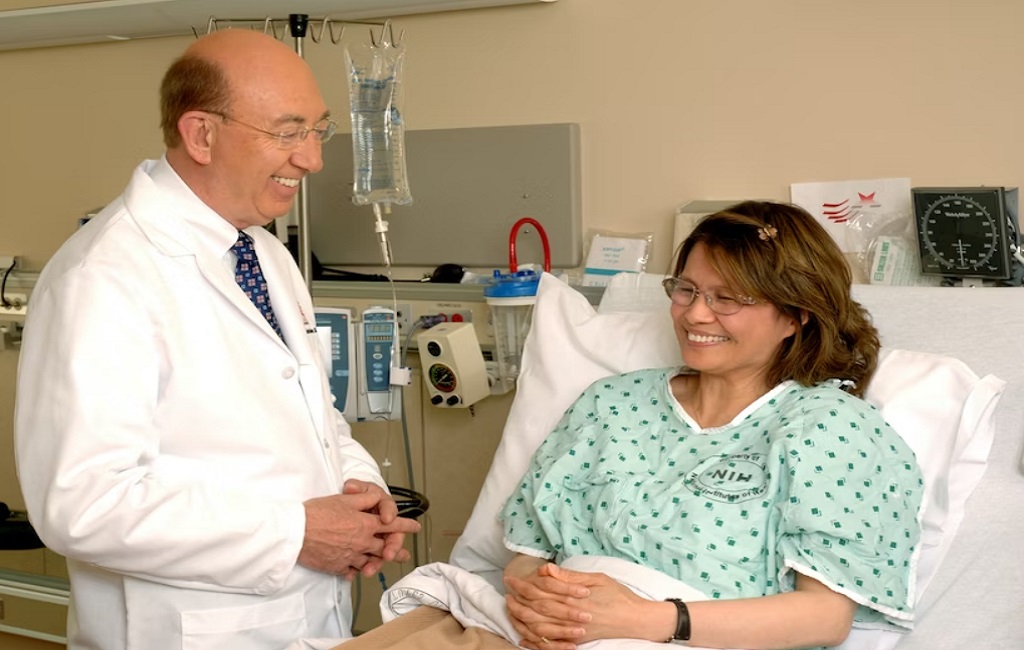Making a career switch can be an exciting yet challenging decision. According to the BBC, an increasing number of workers are changing industries and actively seeking careers that provide a sense of purpose. This widespread shift in career choices reflects a significant shift in how individuals perceive their jobs.
For individuals looking to transition into the nursing field, specialized programs offer a pathway to turn their dreams into reality. These programs are designed for those who hold a bachelor’s degree in a non-nursing field and wish to pursue a career in nursing.
In this article, we will explore how specialized programs make this career transition possible and empower individuals to achieve their nursing aspirations.
Leveraging Prior Experience
When transitioning from another career to nursing, individuals bring a wealth of transferable skills to the table. Specialized programs acknowledge and capitalize on these skills, allowing students to integrate their prior knowledge and experiences. Whether it’s critical thinking, communication, or leadership abilities, these qualities can enhance the nursing profession and make the transition smoother.
According to Forbes, strong leadership plays a crucial role in the healthcare sector due to the unpredictable nature of emergencies that can arise at any time. Whether it’s a natural disaster or a medical crisis, healthcare organizations rely on effective leaders to make informed decisions and prioritize the well-being of patients and staff.
Online Learning for Rapid Progression
Specialized nursing programs have recognized the need for flexibility and accessibility in today’s fast-paced world. That’s why many institutions now offer accelerated BSN programs online. These programs maintain the same rigorous curriculum found in traditional nursing programs but with the added convenience of online learning.
Students may listen to lectures, participate in discussions, and complete projects from the comfort of their own homes, allowing them to fit their studies around their existing schedules.
According to the University of Indianapolis, as a result of its ability to accommodate people with existing commitments, accelerated BSN programs have grown increasingly popular among those who are switching careers.
Students may complete their nursing education at their own speed and from any location with an internet connection, whether they are balancing employment, family duties, or other obligations. This adaptability enables job changers to shift into the nursing profession with minimal disturbance to their everyday life.
Bridging Theory and Practice
Specialized nursing programs emphasize hands-on experience through extensive clinical rotations. These rotations provide students with opportunities to apply theoretical concepts in real-world healthcare settings. By immersing themselves in clinical environments, students gain practical skills, develop confidence, and establish a solid foundation for their nursing practice.
Specialized Support and Mentorship
Recognizing the unique needs of career-switching students, specialized nursing programs often offer tailored support and mentorship. As highlighted in a post by the Canadian Medical Association, a research article published in AEM Education and Training revealed that mentorship has a positive impact on mentees.
The study showed that mentorship increased mentees’ feelings of personal accomplishment while reducing depersonalization and emotional exhaustion. Additionally, mentorship was found to be effective in mitigating burnout and fostering compassionate self-improvement among individuals.
Academic advisors and mentors guide students throughout their journey, offering guidance on course selection, study techniques, and career planning. This personalized support helps individuals navigate the challenges of transitioning careers and ensures they receive the necessary assistance to succeed.
Streamlining the Path to Practice
One of the significant advantages of specialized nursing programs is the streamlined licensure process. These programs are designed to meet the requirements for licensure as a registered nurse (RN) within a shorter timeframe. Students undergo comprehensive preparation for the licensing examination, equipping them with the knowledge and skills necessary to practice nursing safely and competently.
Career Placement and Advancement Opportunities
Specialized nursing programs often have robust networks and partnerships with healthcare organizations. This facilitates career placement opportunities for graduates, as they can benefit from job placement assistance and connections within the nursing community.
Additionally, specialized programs may provide avenues for career advancement, such as certifications or advanced degree options, enabling nurses to further develop their skills and pursue leadership roles.
Final Thoughts
Specialized nursing programs cater to the growing trend of career switches and offer a viable pathway for individuals seeking to transition into the nursing field. These programs recognize the value of transferable skills brought by career switchers, provide flexible online learning options and emphasize practical experience.
They also offer personalized support and mentorship, streamline the licensure process, and facilitate career placement and advancement. By capitalizing on these insights, specialized nursing programs empower individuals to pursue their dreams, contribute to the healthcare sector, and find fulfillment in a career that aligns with their sense of purpose.



